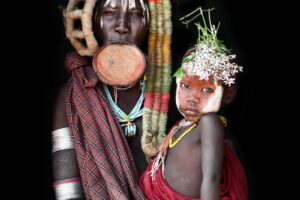Nestled in the heart of Europe, Liechtenstein stands as a small yet remarkable country, often referred to as a microstate. Despite its size, this landlocked principality boasts a rich history, stunning landscapes, and a unique blend of tradition and modernity. In this article, we will explore the captivating allure of Liechtenstein and delve into its fascinating features.
Geographically, Liechtenstein is situated between Switzerland to the west and Austria to the east. With a land area of just 160 square kilometers, it is one of the smallest countries in the world. Despite its diminutive size, Liechtenstein’s natural beauty is awe-inspiring. The majestic Alps dominate its southern border, providing breathtaking vistas and a haven for outdoor enthusiasts. Hiking, skiing, and mountain biking are popular activities, allowing visitors to immerse themselves in the splendor of this picturesque country.
Liechtenstein’s history is deeply intertwined with its ruling family, the Princely House of Liechtenstein. The principality was formed in 1719 when the Liechtenstein dynasty purchased the lordship of Schellenberg and the County of Vaduz. These acquisitions eventually led to the establishment of the sovereign state known as Liechtenstein. The royal family has played a crucial role in shaping the nation’s development, contributing to its stability and prosperity.
Despite its small population, Liechtenstein has managed to create a thriving economy. The country has evolved from an agrarian society into a prosperous modern state with a highly industrialized and diverse economy. Liechtenstein is known for its strong financial sector, with a favorable business environment attracting numerous international companies. Its per capita income is one of the highest in the world, and the country enjoys a high standard of living.
Liechtenstein is also renowned for its commitment to the arts and culture. The principality boasts several world-class museums, including the Liechtenstein Museum of Fine Arts, which houses an impressive collection of modern and contemporary art. The capital city, Vaduz, is a cultural hub, with galleries, theaters, and annual events such as the Vaduz Summer Nights festival. The preservation of traditions is also a significant aspect of Liechtenstein’s cultural identity, with traditional festivals and customs celebrated throughout the year.
Politically, Liechtenstein is a constitutional monarchy with a parliamentary democracy. The reigning Prince of Liechtenstein, currently Prince Hans-Adam II, holds significant executive powers, while the government is responsible for day-to-day administration. The principality is known for its stability, strong rule of law, and respect for democratic principles.
Liechtenstein’s commitment to environmental sustainability is noteworthy. The country has implemented various measures to protect its natural resources and reduce its carbon footprint. Renewable energy sources play a significant role in Liechtenstein’s energy production, with hydroelectric power stations harnessing the country’s mountainous terrain. Efforts to preserve biodiversity and promote ecological awareness are also evident, making Liechtenstein a leader in sustainable development.
In conclusion, Liechtenstein may be small in size, but it captivates visitors with its natural beauty, rich history, thriving economy, and commitment to arts, culture, and the environment. This charming principality continues to make a mark on the world stage, standing as a testament to the power of vision, innovation, and the enduring spirit of its people.



















Add Comment